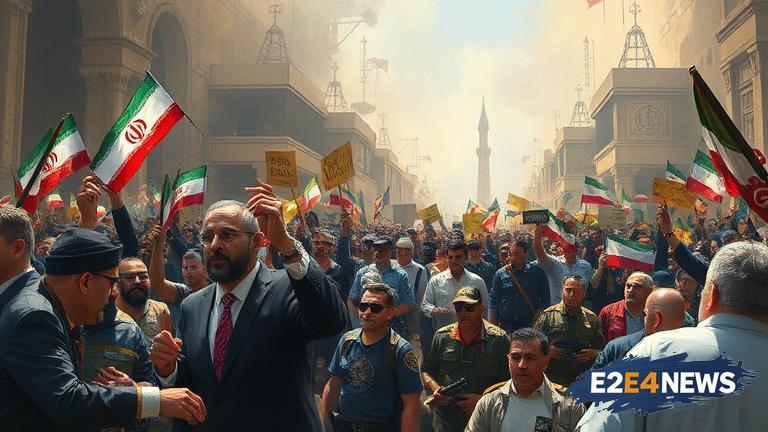The Iranian regime is facing unprecedented challenges as protests and demonstrations continue to sweep the nation, fueled by discontent over economic hardship, human rights abuses, and government corruption. The protests, which began in response to the death of a young woman in police custody, have evolved into a broader movement calling for regime change and democratic reforms. The Iranian government has responded with force, deploying security forces to quell the unrest and imposing strict internet censorship to limit the spread of information. Despite these efforts, the protests have shown no signs of abating, with thousands of Iranians taking to the streets to demand justice, freedom, and accountability. The international community has condemned the Iranian government’s crackdown on protesters, with many countries imposing sanctions and calling for an end to the violence. The United States, in particular, has been vocal in its criticism of the Iranian regime, with the Biden administration imposing fresh sanctions on key officials and entities. The European Union has also taken a strong stance, with EU leaders calling for an immediate end to the violence and the release of all detained protesters. The Iranian economy is also feeling the strain, with the national currency plummeting in value and inflation soaring. The country’s oil exports, a key source of revenue, have been severely impacted by US sanctions, leaving the government struggling to fund its activities. The Iranian regime has long been accused of sponsoring terrorism and destabilizing the region, and the current crisis has raised fears of a potential power vacuum. The situation has also sparked concerns about the potential for a refugee crisis, with thousands of Iranians fleeing the country in search of safety and security. The international community is urging calm and restraint, with many calling for a peaceful resolution to the crisis. The United Nations has issued a statement expressing concern over the situation and calling for an end to the violence. The Iranian government has thus far refused to engage in meaningful dialogue with the protesters, instead opting for a policy of repression and intimidation. The protests have also highlighted the role of social media and the internet in mobilizing dissent and promoting democracy. The Iranian government’s attempts to restrict access to these platforms have been largely unsuccessful, with many Iranians finding ways to circumvent the censorship. The crisis has also raised questions about the future of the Iranian regime, with many speculating about the potential for a transition to democracy. The Iranian people are demanding change, and it remains to be seen whether the government will be able to respond to these demands or whether the situation will continue to escalate. The international community is watching with bated breath, aware that the consequences of a collapse of the Iranian regime could be far-reaching and devastating. The situation is complex and multifaceted, with many different factors at play. The Iranian government’s response to the protests will be crucial in determining the outcome of the crisis, and the international community must continue to pressure the regime to respect the rights and freedoms of its citizens. The protests are a testament to the power of the human spirit and the desire for freedom and democracy that exists in every corner of the globe. The Iranian people will not be silenced, and their demands for justice and accountability will not be ignored. The world is watching, and it is imperative that the Iranian government responds to the crisis in a peaceful and constructive manner.
